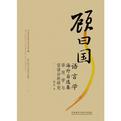顾曰国语言学海外自选集
2010-3
外语教学与研究出版社
顾曰国
392
无
《中国英语教育名家自选集》丛书第一批共推出10本,入选作者有王宗炎、桂诗春、胡壮麟、胡文仲、戴炜栋、秦秀白、刘润清、张正东、文秋芳、刘道义等英语教育名家。第一批10本已于2008年1月全部出齐,在我国英语教育界获得广泛的好评。 本丛书第一批10本书突出了“英语教育”这一主题,所收论文都是跟英语教育和教学密切相关的。但我们发现,很多奋斗在英语教育一线的专家、学者并不一定以“英语教育”作为主要研究课题。他们当中有很多人从事语言学、文学、翻译、社会与文化、词典学、文体学或其他应用语言学分支学科的研究。本丛书第二批的视野将更为开阔,以期更加全面地反映我国英语教育名家的科研成果。例如,第二批中的第一本《钱冠连语言学自选集》收录了作者在语言学研究方法、语言哲学、语言全息论、语用学、美学语言学等方面的研究成果。第二批将是开放式的,成熟一本推出一本,直至10本出齐为止。 本丛书专收我国知名英语教育家的学术论文,以填补两方面的空白:1.以英语教育名家为主线的自选集。2.以英语教育、语言学和应用语言学为主题的系列丛书。本丛书同时入选“北京外国语大学校级自选课题项目”。本书的读者对象为英语教师、英语专业研究生、师范院校英语本科生等,可作为他们从事科研、撰写论文的参考文献。人选的文章多散见于国内外学术期刊,且时间跨度很大,读者不易觅得。自选集展示了诸位名家对英语教育及相关学科的研究脉络,汇集成丛书,将成为我国英语教育史上不可多得的史料。 与此同时,《世界应用语言学名家自选集》也已于近期由外语教学与研究出版社陆续推出,敬请读者关注。
本书为顾曰国教授从事英语教学和语方言学研究几十年来关于语用学与话语分析研究等方面的论文精选。本书凝聚了他多年的治学心得,所收文章曾在不同时间发表在不同的海外期刊上,精选出版,是相关专业研究生和教师不可多得的参考资料。
顾曰国,现任中国社会科学院语苦研究所研究员、当代语言学研究室主任、《当代语言学》杂志主编之一、博士生导师。 1979~1981年在安徽大学攻读英语语言文学研究生;1985年获英国兰卡斯特大学语言学系语言研究优等硕士学位;1987年获该系语用学与修辞学博士学位,师从英国学术院院士G.N.Leech;1988-1991年在北京外国语大学外国语言研究所从事博士后研究工作,师从许国璋教授;1992-2008年在北京外国语大学先后任副教授、教授、博士生导师,期间还先后担任英语二系主任、应用英语学院院长、校长助理、网络教育学院常务副院长等职。社会兼职包括英国诺丁汉大学特聘教授(2004-2012)、香港理工大学学术顾问(2006-2012)、Journal, of Pragmatics等九种国际学术刊物的编委等。 先后获霍英东教育基金第四届青年教师科研类一等奖、中国“国氏”博士后奖、国家级“优秀回国人员”、国家级“优秀博士后”称号、中央广播电视大学教材开发一等奖、网络教育10年成果展论文一等奖等。
Foreword 自序鸣谢Part I Theoretical Explorations 1 The Impasse of Peflocution 2 Pragmatics and Rhetoric:A Collaborative Approach to Conversation 3 Towards a Multiplegoal Ne0—Grice 4 Five Ways of Handling a Bedpan:A Tripartite Approach to Workplace Discourse 5 Towards a Model of Situated Discourse Analysis 6 Towards an Understanding of Workplace Discourse: A Pilot Study for Compiling a Spoken Chinese Corpus of Situated Discourse 7 Multimodal Text Analysis:A Corpus Linguistic Approach to Situated Discourse 8 An Institutional Anniversary Ceremony as Systemic Behavior in Chinese Context 9 Conventions of Language Part II With Special Reference to Modern Chinese 10 Politeness Phenomena in Modem Chinese 11 Doctor—patient Interaction as Goal—directed Discourse in Chinese Sociocultural Context 12 Chinese Officialdom 7 Guan)at Work in Discourse 13 Guanxi:Backdoor Practice as Goal—directed Discourse 顾曰国主要学术著述
Consequences of illocutionary acts are also perlocutionary effects. Van Dijk soon observes: "Perlocutionary effects are.., beyond the domain of a linguistic theory of pragmatics. " They are so because whether the hearer behaves in the way proposed by the speaker is "beyond the control of the speaker and beyond the conventional norms of communicative interactions" (1977: 198). Van Dijk, unlike Sadock and Gaines, clearly draws a line between illocution and perlocution. This view is shared by Bach and Hamish (1979) and Leech (1983). Bach and Harnish argue that the illocutionary act is an act of linguistic communication, "an act of expressing an attitude by means of saying something" (1979: vx). The distinctive feature of the illocutionary act is its reflexive intention, whose fulfilment consists of its recognition by the hearer ( 1979: 15). The act is successful, that is communication has been achieved, if the hearer identifies by means of recognition of the reflexive intention, the attitude expressed in the way the speaker intends him to identify it (1979: xv). Unlike illocutionary intention, which is reflexive, perlocutionary intention can be overt (i.e. recognized or intended to be recognized), or covert (i.e. not recognized or intended not to be recognized), or reflexive. When it is reflexive, it is not communicative in the way that illocutionary intention is: the fulfilment of perlocutionary intention does not rest on the recognition but on the production of some further effects (1979: 80). Perlocutionary effects, including any effects on feelings, thoughts, and actions of the addressee, are thus quite different from illocutionary ones. Bach and Harnish therefore reach the conclusion that the illocutionary act is in the domain of linguistic communication, for "It is sufficient that H recognize Ss R-intention, Ss expressed attitudes. This is what communication is about; anything more is more than just communication" (1979: 16). Thus, the perlocutionary act, which goes far beyond Hs recognition of Ss expressed attitudes, lies beyond linguistic communication.

无
对该学者的研究有更好的了解了,方便阅读,不用再四处查找了
很好的书,写得不错